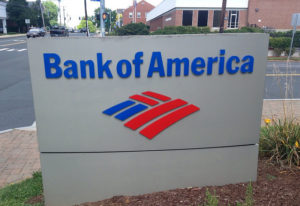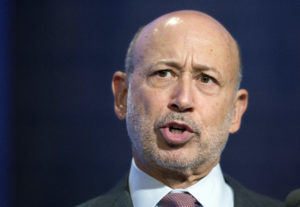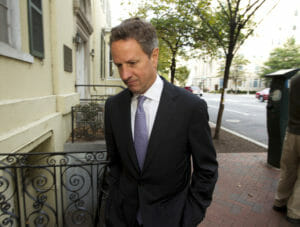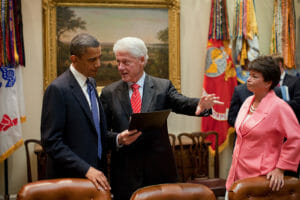Pinch Me: What Did Sandy Weill Just Say?
Sanford Weill -- the former Citigroup CEO who led the charge to repeal Glass–Steagall and bring about the era of "too-big-to-fail" banks -- is stunning critics by calling for the breakup of behemoth financial institutions.
Sanford Weill — the former Citigroup CEO who led the charge to repeal Glass–Steagall and bring about the era of “too-big-to-fail” banks — is stunning critics by calling for the breakup of behemoth financial institutions.
“I think what we should probably do is go and split up investment banking from banking, have banks be deposit takers, have banks make commercial loans and real estate loans, and have banks do something that’s not going to risk the taxpayer dollars, that’s not going to be too big to fail,” Weill told CNBC on Wednesday morning.
Weill once had a plaque in his office that read “The Shatterer of Glass-Steagall” — the very law whose premise of separating commercial from investment banking he now seems to support.
The Huffington Post:
It’s a shocking statement coming from Weill, who was responsible for turning Citi into one of the largest banks in the world. During his tenure, he bought up one financial institution after another and orchestrated the merger of Travelers Group and Citibank in 1998–at the time, the largest merger in history. He retired as CEO of Citigroup in 2003 and stepped down as chairman in 2006.
“Is Sandy Weill now considered a ‘born again banker’?” Joseph Saluzzi, co-founder of Themis Trading and prominent Wall Street critic, tweeted Wednesday morning when Weill’s statements made the rounds.
Weill may have changed his position, but for those who have suffered losses in the recent financial meltdown, it comes too late. According to Truthdig Editor-in-Chief Robert Scheer–who has long opposed Weill’s position on Glass-Steagall–the damage of deregulation has already been done.
Scheer wrote in a 2010 column for Truthdig:
Some guys have all the luck, particularly when they supply the dice. There would be no housing crisis were it not for radical financial deregulation legislation that Weill and other Wall Street hotshots got Clinton to approve. First Weill engineered a merger of the Travelers insurance company, which he headed and which included investment banking in its portfolio, with the commercial banking entity of what was then Citicorp. That merger would have been judged illegal because of the Glass-Steagall legislative barrier to merging investment and commercial banking that President Franklin Roosevelt signed into law to prevent another Great Depression, but Weill got the law changed to accommodate his plans.
— Posted by Alexander Reed Kelly.
Your support matters…Independent journalism is under threat and overshadowed by heavily funded mainstream media.
You can help level the playing field. Become a member.
Your tax-deductible contribution keeps us digging beneath the headlines to give you thought-provoking, investigative reporting and analysis that unearths what's really happening- without compromise.
Give today to support our courageous, independent journalists.






You need to be a supporter to comment.
There are currently no responses to this article.
Be the first to respond.